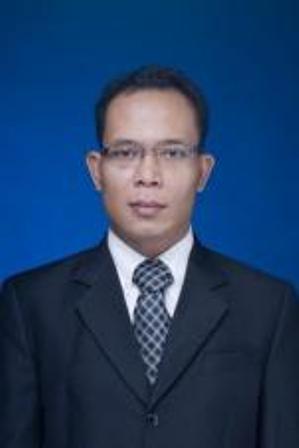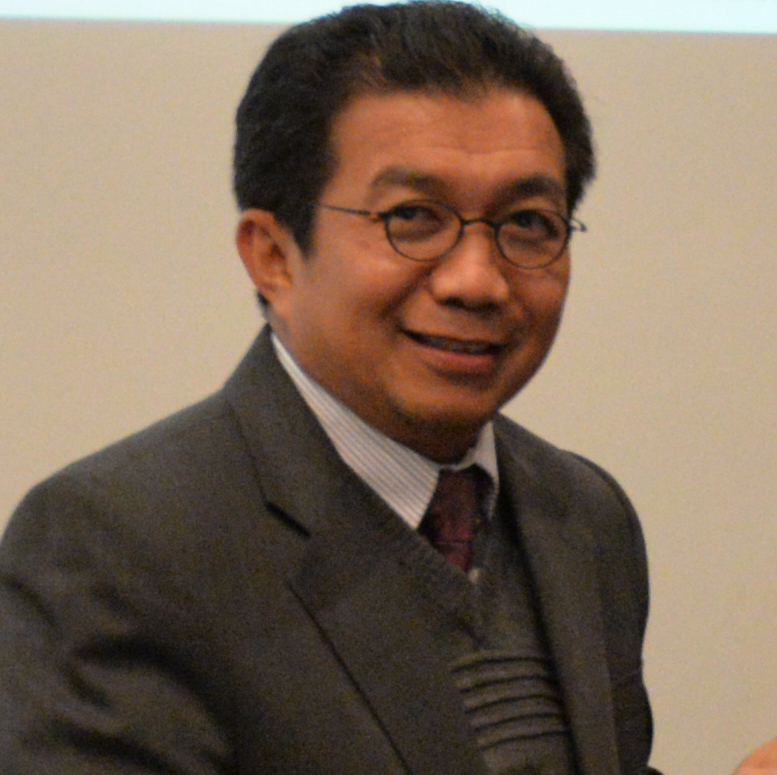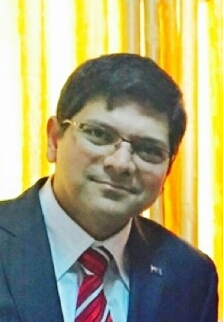
International and National Conference on Featuring Indonesia’s Sustainable Development (INCOFISD2017)
April 6-7, 2017
VENUE:
Universitas Trisakti, Jakarta Indonesia

A. Introduction
The journey of Millennium Development Goals (MDGs) has been accomplished on 2015 and it has also been replaced by the Sustainable Development Goals (SDGs). The SDGs draft covers 17 goals including strengthening the means of implementation and revitalizing global partnership, as well as increasing green productivity for sustainable development. Green productivity and economic growth will be the main focus of this conference, without leaving other comprehensive objectives.
Green Productivity (GP) is a strategy for simultaneously enhancing productivity and environmental performance for overall socio-economic development that leads to sustained improvement in the quality of human life. It is the combined application of appropriate productivity and environmental management tools, techniques and technologies that reduce the environmental impact of an organization's activities, products and services while enhancing profitability and competitive advantage.
The objectives of SDGs are critical because a number of organizations have been doing sustainability initiatives; yet the problems have not been solved or the impacts are not significant. Green productivity will help organizations promoting sustainable development to synchronize knowledge, resources, expertise, finance, and products to address common initiatives from academicians, corporations, SME, community, and stakeholders at a large group. Issues surrounding green productivity include efficiency, empowerment, process production, waste, energy, emission, finance, collaboration and report/documentation. Green productivity is a dynamic strategy to harmonize economic growth and environmental protection for sustainable development. It offers small and medium businesses a way to achieve a competitive advantage by doing better with less. It is thus a practical strategy to increase productivity and protect the environment simultaneously.
In Indonesia, according for economic growth, taxes are still a major source of revenue on state budget that can derived from investments, private consumption and exports. The role of the state budget is very important for the economy of a country, which is to create jobs, to reduce the unemployment rate. Budget allocation is based on government’s programs (Nawacita) which are 1) improving the performance of public services; 2) well-targeted subsidy; 3) continuing the development priorities; 4) fulfillment of the health budget; 5) improving the welfare of the poor; 6) the provision of basic necessities of housing; and 7) harmonize on fiscal decentralization policy. Therefore, the state budget is a benchmark for economic development both in terms of economic growth and infrastructure, which is the budget target itself.
The government policy using tax amnesty to meet the state budget of revenues, which is the first period ended at September 30, 2016. The total value of assets that are reported in the tax amnesty is Rp3,770.45 billion, consisting domestic declaration treasures Rp2,555 billion, abroad declaration of assets is Rp974 billion, and repatriate Rp141 billion. Ransom remission of taxes collected, Rp89.2 billion, are from deferred tax Rp3.06 billion, and of the suspension of the examination and preliminary evidence Rp363.67 billion.
State revenues derived from the tax amnesty need to do a review of government spending in terms of value for money; also known as the spending review. Spending Review is the efficiency of the budget that includes the effectiveness, efficiency and economy on the government budget. According to the OECD, spending review is the process of developing and adopting savings measures based on the systematic scrutiny of baseline expenditure. From the context of the spending review, then what about the management, preparation, implementation, reporting, and oversight of the state budget in order to achieve revenue and expenditure models of state harmonization, so it can bring sustainable development in Indonesia.
Trisakti University, as one of leading universities in Indonesia has conducted a number of conferences, including international conferences. Currently, we would like to organize The International and National Conference with the topic of “Featuring Sustainable Development Goals (SDGs): Increasing Green Productivity and Economic Growth” in April 2017. The Conference will promote SDGs issues and practices as well as facilitates partnerships among the stakeholders towards sustainable development, especially in increasing green productivity and economic growth.
In the Conference, participants will engage in a number of plenary and breakout sessions, as well as call of papers, workshop and colloquium, on selected issues and sectors. Corporate and academician leaders will be able to participate in the Conference to share their ideas. The experts of green productivity from Japan and the experts of economic growth from Australia, and leading corporations in Indonesia which implement the green productivity process will deliver their expertise and experiences during the Conference. What is more, Trisakti University will introduce itself to be the first university that introduce green productivity concept in the lectures.
B. Objectives
1. Promote Sustainable Development Goals (SDGs) after the Millennium Development Goals (MDGs) accomplished.
2. Promote trends and practices in sustainability, such as new and renewable energy, environmental conservation, SMEs and community development, green productivity, and economic growth.
3. Facilitate capacity building of individuals, including the academicians, corporate leaders, and institutions through knowledge sharing, discussions, call for papers, workshop, and colloquium.
4. Establish and strengthening global partnerships among the stakeholders from the Asian countries in promoting and implementing sustainability principles.
5. Provide great opportunities for individuals and organizations to seek new ideas and partnerships in sustainability, especially in understanding the global demand.
C. Place, Date and Activities
1. Colloquium will be held on April 1, 2017 at Trisakti University.
The target participants are students of Doctoral Program in Economic.
2. Workshop Green Production through Material Flow Cost of Accounting (MFCA). This workshop will be facilitated by Mr. Hiroshi Tachikawa on April 3-5, 2017.
The target participants are practitioners from corporations and academicians. Number of participants will be limited up to 30 people who should be committed attending full 3 days.
3. Plenary Session and Call for papers will be held on April 6-7, 2017 at Trisakti University.
The target participants are practitioners, academicians, government officials, and public who are interested in this topic.
D. Keynote Speaker, Plenary Speakers and Moderator
Keynote Speakers
1.

M. Hanif Dhakiri – The Minister of Manpower in Kabinet Kerja 2014-2019. He was a member of Parlienment (2009-2014) in Komisi X from Partai Kebangkitan Bangsa before appointed as a minister in Kabinet Kerja.
2.

Muliaman D. Hadad – The Chairman of the Board of Financial Services Authority. He is also a lecturer in Magister Economic of Faculty of Economic and Business Trisakti University.
Plenary Speakers
1.

Hiroshi Tachikawa (Japan) – The expert of green productivity, material flow cost accounting (MFCA) and other strategic environmental management approach from environmental risk management to carbon footprint. Managing Director at Propharm Japan Co., Ltd, Expert at material flow cost accounting and other strategic environmental management approach from environmental risk management to carbon footprint.
Currently engaged in international standardization process at ISO TC 207 WG8 (material flow cost accounting), conducted and supported multiple material flow cost accounting projects on behalf of various corporations including automobile parts and metal plating industries, under the Asian Productivity Organization (APO), Japan.
2.

René VAN BERKEL is Unit Chief, Industrial Resource Efficiency with the United Nations Industrial Development Organization (UNIDO) based in Vienna, Austria. He is responsible for UNIDO’s contribution to the global Resource Efficient and Cleaner Production program, operational in some 50 emerging and developing countries, Including Indonesia.
He has over 20 years of experience as consultant, trainer and researcher on cleaner production, eco-efficiency, industrial symbiosis and corporate sustainability.
3.

Mohsin Habib – He has conducted in research department in 20 microfinance institutions (NGO-MFI's) in Asia. He is currently involved as the honorary research adviser at the Brotherhood of St. Laurence, Australia. He has received both national and international grants from United Nations Development Program (UNDP), Credit Union Foundation Australia (CUFA) and AusAID. Now, he is also a Director of International Program of Swinburne University, Australia.
Moderator:

Juniati Gunawan – She is a Lecturer, Researcher and Advisor in Trisakti University, the Indonesian pioneer in sustainability accounting, reporting and solutions that help academicians and businesses realize their full potentials. She shares her thoughts about the evolution of CSR and other topics on sustainability, corporate reporting, as well as developing a new concept of sustainability accounting in Indonesia. Her expertise supports initiatives in the areas of learning, expecting that sustainability will be a focus for all people, especially the raising awareness in maintaining the earth for the next generations.
E. Participants
1. Honorable guests e.g. representatives of Asian Productivity Organization (APO) Japan and National Productivity Organization (NPO) Indonesia.
2. Government officials (local and central), officials from the ministries, and representatives of the embassies.
3. Academia, e.g. directors of business schools, the rector and deans, professors, college students, researchers, executives from study centers, and research directors.
4. Corporate, e.g. business owners, commissioners, the c-suite, senior managers, sustainability directors/managers/officials, CSR directors/managers/officials, public relations directors, and corporate secretaries.
5. Public, who is interested in this topic.
E. Guidelines for Presenters and Hosts
1. Presenter in Plenary and Breakout Sessions
A presenter is expected to present the specific topic in this conference and link it to SDGs perspective and how it can be addressed through “green productivity and economic growth”. A presenter is recommended to present in the following flow:
(a) Trends and status.
(b) Challenges and problems.
(c) Linkage to SDGs.
(d) Green productivity to address the topic.
(e) Economic Growth to address the topic.
(f) Conclusions and recommendations.
However, a presenter can modify the flow or use his/her own as long as it is in line with the topic and main theme of the Conference.
2. Host in Plenary and Breakout Session
A host is more than just a moderator and facilitator. A host organizes the session and maintains the time. The main roles of a host are (1) to ensure that the discussion is on the right track according to the main theme “green productivity” and (2) to contribute his/her expertise in the discussion as a complement to the presenters. A host shall NOT taking advantage to take over the role of presenters (or over-shining the presenters) in the session.
A host is expected to make one-page report of each session covering:
(a) Up to five trends and challenges of the topic.
(b) Main ideas, thoughts, concept and recommendation of the presenters.
(c) Up to five critical statements or questions that shall be addressed by the stakeholders in the future.
(d) Up to five conclusions and recommendations each on “green productivity” derived from the discussions.
The reports should be submitted to the organizer.
F. Call for Papers and Colloquium
The International and National Conference invites the academia and companies, as well as other institutions to submit papers based on research, study case or critical review on sustainability cases, especially in green productivity. The papers should describe a high competence of academic or practical initiatives conducted by academia and practitioners or other type of organizations to address real issues in economy, social and environment according to the given theme. The papers will be reviewed through a blind review process and selected papers will be eligible to be presented in the Conference.
1. Subtopics
a. Social Capital and Corporate Development
b. Contemporary issues in Sustainability Accounting, Assurance and Reporting
c. Material Flow of Cost Accounting (MFCA)
d. Sustainability: Achievement, Trends and Challenges
e. Green Marketing: Achievement, Trends and Challenges
f. Global Economy: Achievement, Trends and Challenges
g. Public Policy: Achievement, Trends and Challenges
h. Sustainable Supply Chain
i. Financial and Risk Management
j. Green Productivity
k. Ethics and Government
l. Environment & Social Accounting
m. Sustainability & Integrated Reporting
n. Sustainable Development Goals
o. Other Related Topics
2. Outline
a. Abstract: picturing the whole content of paper in systematic and understandable presentation.
b. Introduction: describing shortly and concisely the strong motivation in conducting study.
c. Theory/Literature review: explaining the theory or literature reviews which are relevant to the topic.
d. Methodology: explaining relevant method in conducting study.
e. Result & Discussion: describing the result & analysis of findings, relate to theory/literature review. Paper should demonstrate the high level quality of analysis.
f. Conclusion: explaining the conclusion, limitation, implication and recommendation.
3. Requirements
a. Paper should only be submitted by maximal of 3 same authors (either main or co-author), however, participants for the conference are not limited.
b. Paper should be identified in which issues its relevance.
c. A paper can be designated for another issue or sector by the reviewers if there are no more slots available in the initially selected issue.
d. The paper should be written based on thorough academic standard and never been presented or published in a journal, book, article or other type of publications.
4. Writing Guidelines
a. Abstract: maximum 300 words, with 5 keywords.
b. The paper consists of 5,000 up to 9,000 words.
c. The paper is submitted in editable MS-Word format with no password.
d. The paper is written using Times New Roman font, 12 points font size, one and half (1.5) lines spacing, and normal setting of margin.
e. Writing should be applied on internationally-based academic of English (for International Conference) or Bahasa (for National Conference)
5. Submission and Payment
(a) Participant fills the paper registration form and pays submission fee for each paper submitted to the Conference:
Name : Christina Dwi Astuti
Bank : Mandiri
Account :117-000-204-2695
Swift code : BMRIIDJA
Proof of payment please send to: febusakticonference@gmail.com
(b) The paper is submitted within the given period of time.
(c) There is no refund for a delay of paper submission or cancellation.
(d) The paper will be reviewed and an announcement is made for the papers eligible for presentation in the breakout sessions.
(e) Maximum two weeks after the announcement (if participants submit papers), a participant pays the participant fee for each person attending the conference, otherwise paper(s) will be considered withdrawals.
6. Acceptance, Review and Revision
(a) The Committee has the rights to use the submitted and accepted papers by recognizing the original authors.
(b) Each paper submitted to the Committee will has a double blind-review by two reviewers.
(c) Reviewers may ask the authors to revise the papers within the given period of time, especially when they think the revision is significant.
(d) Failure of meeting the deadline of paper revision and submission will cause the paper to be excluded in the proceeding.
(e) There is no refund for an inability to revise and submit the paper on time.
7. Presentation
(a) A presenter must submit his/her presentation material at least one week before the first day of Conference.
(b) To avoid a delay, a presenter should be sitting in the room from the beginning of Breakout Session.
(c) A presenter can utilize audio visual for presentation.
(d) A presenter is given fifteen (15) minutes with a specific allocation of time as the following:
Five (5) minutes for presenting the paper
Eight (8) minutes for questions and answers
Two (2) minutes for preparation, introduction and closing
G. Important Dates
Last Abstract Submission: March 7, 2017
Last Full Paper Submission: March 14, 2017
Notification of Accepted Paper (Full): March 18, 2017
Early Bird: March 15, 2017
Last Registration and Payment: March 30, 2017
Colloquium Date: April 1, 2017
MFCA Workshop: April 3-5, 2017
Conference Date (Call for Paper): April 6-7, 2017
H. Venue (Tentative)
1. MFCA Workshop
Ministry of Manpower and Transmigration or Trisakti University
Jl. Jenderal Gatot Subroto Kav. 51, RT.5/RW.4, Kuningan Timur , Jakarta 12950
Jalan Kyai Tapa No.1 Grogol Petamburan, Jakarta Barat, 11440.
2. Call for Paper and Colloquium
A Campus, Trisakti University, S Building (Hendriawan Sie Building), 8th floor, Jalan Kyai Tapa No.1 Grogol Petamburan, Jakarta Barat, 11440
REGISTRATION AND SUBMISSION TIPS
Participant/Presenter Registration
- If you have not registered with ConfBay before, click on Register. Follow the instructions listed on the screen.
- If you have registered with ConfBay before, click on Log In.
Online Paper Submission
- After logging in, you will be able to submit your paper through the Online Submission System.
- Click on the “My Submission” menu. Follow the instructions listed.
- Notification emails will be sent to you as a confirmation of the submission.
_______________________________________________________________________________________________
